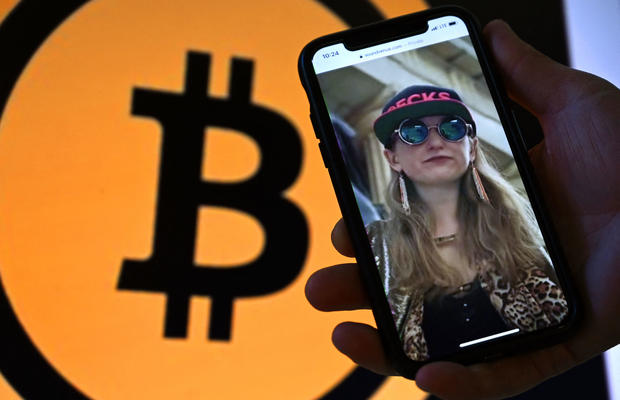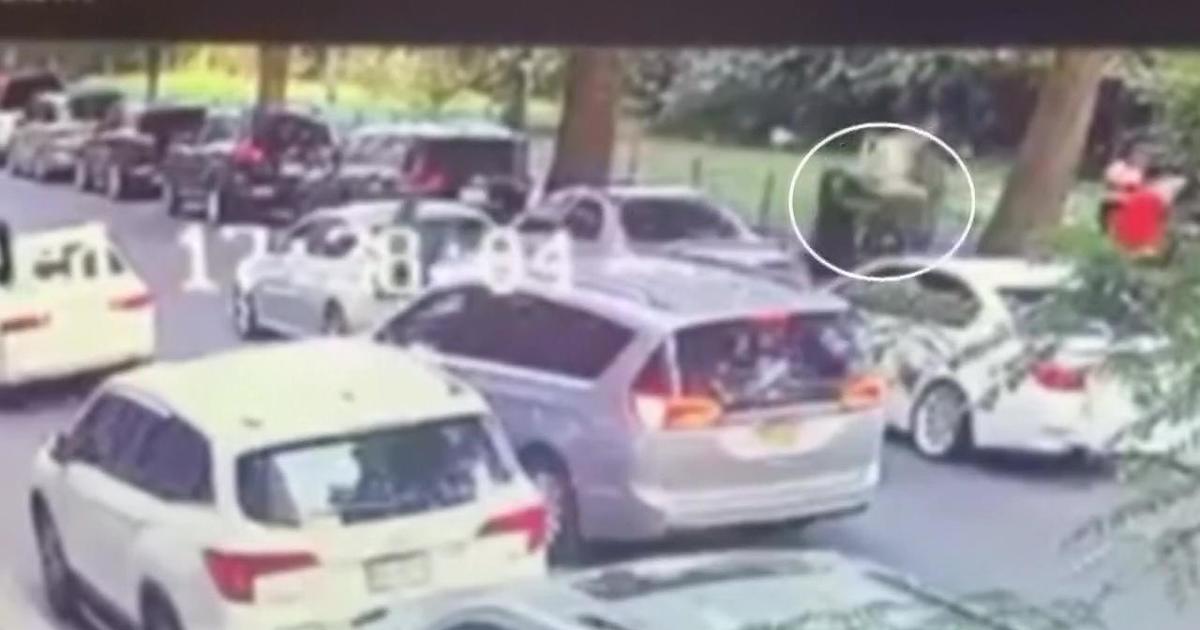Couple accused in $4.5-billion bitcoin scheme to be separated before trial
Washington – The New York couple charged with conspiracy to launder over $4 billion in stolen bitcoin will be separated before trial — D.C. Chief District Judge Beryl Howell ruled Monday that the husband would be detained and his wife would be freed, partially undoing the decision of a New York judge who had ordered their release on bond last week.
Russian national Ilya Lichtenstein, whose social media accounts identify him as a "tech entrepreneur," is accused of attempting to launder the proceeds of almost 120,000 bitcoin stolen in a 2016 hack of Bitfinex, an online cryptocurrency exchange.
His wife, Heather Morgan, who was also charged, will be free under strict custodial supervision.
At the time of the hack, the criminal complaint says the bitcoin was worth $71 million, but the price has spiked since then.
The couple was arrested at their New York residence last week, and $3.6 billion in financial assets were seized, in what the Justice Department said was the largest seizure in the department's history. However, the two are not accused of carrying out the 2016 hack.
A New York judge would have allowed the two to be released ahead of trial on bonds of $5 million and $3 million respectively, but the Justice Department immediately asked Howell to reverse the ruling because of the likelihood that the defendants might flee to avoid prosecution.
Prosecutors wrote that the defendants not only have a "strong incentive to flee," but also the means, and they pointed out that the couple appeared to have taken "meaningful steps" toward forging new identities and opening financial accounts in Ukraine and Russia.
Howell conceded from the bench that the evidence "indicates the defendants are not strangers to… evad[ing] detection" and characterized the evidence as "very strong."
"It is difficult to overstate the gravity of the alleged conduct," she told the two, who appeared in the D.C. District Court Monday, wearing green prison uniforms and face masks. Lichtenstein's parents and brother were also present in court.
Howell ultimately decided Lichtenstein should be jailed, while allowing his wife to leave jail with ankle bracelet monitoring.
The Justice Department alleged that after the cyber intrusion, blockchain analysis showed the stolen bitcoin had been funneled to a digital wallet under Lichtenstein's control. The couple then allegedly converted some of the stolen cryptocurrency into millions in conventional currency and used the cash proceeds for 70 pieces of gold, a $500 Walmart gift card and purchases on Uber and PlayStation.
Justice Department officials said the couple used sophisticated laundering techniques to get the stolen bitcoin from the digital wallet into various exchanges and bank accounts. They used fictitious identities to set up online accounts and automated financial transactions, prosecutors claimed, before depositing the bitcoin into accounts on virtual platforms and even darknet markets to try to further distance themselves from the fraudulent transactions they were carrying out.
Investigators followed the hacked bitcoin to the darknet sites, through a "circuitous journey" of thousands of transactions that ultimately ended up in accounts tied to the New York couple, federal prosecutors said.
Law enforcement said the "smoking gun" was the discovery of passwords to the wallet from a cloud account held by Lichtenstein that allowed them to seize the cryptocurrency inside.
The couple's defense attorneys contend that the complaint has "many deficiencies" and they characterized the evidence against Morgan as "flimsy."
Court documents describe a scheme in which Lichtenstein and Morgan allegedly worked together to launder the proceeds through complex virtual currency platforms, after which Morgan would deposit the stolen money in bank accounts and claim it as income from shell companies.
"Morgan was extremely hands-on and involved in managing the cryptocurrency held in her own accounts and in the accounts of her businesses. Her business accounts were used to clean and legitimize funds," the documents allege.
Prosecutors portrayed her as a willing partner in the scheme, pointing to her degree in economics and knowledge of cryptocurrency. They noted that Morgan, also a rapper under the pseudonym "Razzlekhan," had bragged about certain technological knowledge like "spear phishing" in her songs.
Although Howell may have been convinced that Morgan willingly participated, she also noted the evidence suggested that Morgan may not have known about the stolen bitcoin until after the funds were transferred from her husband's digital wallet.
Investigators searched the couple's New York residence on January 5 and found "a bin containing various bags holding multiple cell phones, SIM cards, and assorted electronics" under their bed. They also uncovered at least 50 electronic devices, multiple digital wallets used to store cryptocurrency, and approximately $40,000 in cash, along with other foreign currency.
"Lichtenstein's office contained two hollowed-out books, whose pages appeared to be roughly cut out by hand," prosecutors wrote about the apartment search. "The compartments were empty."
But it was not just what prosecutors said the couple is accused of doing that worries them, but who they are and what they may be capable of.
Prosecutors expressed concern Monday that, if the defendants were able to evade law enforcement and enter a country where they have ties, like Ukraine and Russia, they could use it as a "launching point" to fabricate further new identities."
Their legal defense team argued in court the two should be released in accordance with the New York judge's initial ruling, citing in part the couple's decision not to flee or transfer their funds between the January 5 apartment search and their arrest last week.
"We were very very surprised with the arrest," defense attorney Samson Enzer told Howell, arguing that the government had indicated to the couple a charging decision had yet to be made.
His clients have not and will not flee their prosecution because of close family ties and their decision to freeze Morgan's embryos in the U.S. for future family planning, he argued.
"They would literally be leaving their future behind if they left," Enzer said in an attempt to move his clients to home detention. He said he would ask the court to dismiss the most severe charges against his clients.
But prosecutors countered that it would be difficult to raise a child if they were in prison for 25 years, making it more likely that they would flee.
Ultimately, Howell said she considered other heath issues raised by the defense in her decision to free Morgan — defense lawyers said that she had recently undergone a surgical procedure.
Lichtenstein and Morgan face a maximum of 25 years in prison.





